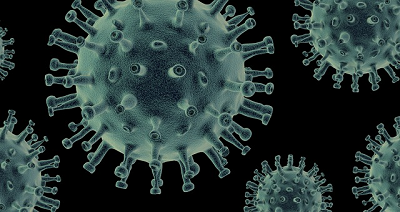What To Do If Non-gonococcal Urethritis Recurs
Non-gonococcal urethritis (NGU) is an infection of the urogenital system caused by pathogens such as Chlamydia trachomatis and Mycoplasma. For men, it typically presents with symptoms like frequent urination, dysuria, or a burning sensation, along with thin, mucous-like discharge, particularly noticeable in the morning. For women, however, may experience subtler symptoms such as increased vaginal discharge and lower abdominal discomfort.

While most patients recover after treatment, some may experience recurrence, which causes physical discomfort and impacts psychological well-being.
Addressing recurrent NGU requires an understanding of the underlying causes:
1. Incomplete Treatment
Treating NGU typically involves the use of antibiotics. However, due to various reasons, some patients may only seek treatment at well-established hospitals and instead visit smaller clinics where proper medication can affect treatment efficacy.
Although many patients receive formal treatment, they discontinue their antibiotics once symptoms improve or temporarily disappear without completing the entire treatment. This can result in the pathogen not being entirely eradicated, leading to recurrence.
Additionally, improper medication can lead to antibiotic resistance, making the infection harder to treat and prone to recurrent. Patients might self-discontinue the treatment as soon as symptoms subside, leading to insufficient treatment.
2. Ignoring the Source of Infection
Reinfection with the pathogen can cause a recurrence of NGU.
The pathogens causing NGU are primarily transmitted through sexual contact. Generally, men exhibit more obvious symptoms, making it easier to diagnose. Women, however, might have milder symptoms that are easily overlooked. If either the patient or their sexual partner does not receive treatment simultaneously, or if sexual activity occurs with an untreated partner during the treatment period, reinfection is quickly obtained.
3. Low Immunity
An individual's immune status plays a crucial role in the recurrence of NGU. In some cases, pathogens might persist at low levels in the urethra after treatment and not be completely eradicated. When the immune system is compromised or other triggering factors are present, these pathogens can increase again, leading to reinfection.
Recurrent non-gonococcal urethritis (NGU) can be troubling, but timely medical intervention, appropriate treatment, and preventive measures can effectively control and reduce the risk.
1. Seek Timely Medical Attention
At the first sign of recurrent NGU, it is crucial to seek medical attention promptly. The doctor will thoroughly examine the patient's symptoms and medical history. Diagnostic tests may be performed to determine the specific pathogen responsible for the infection. Based on the test results, the doctor may adjust the type or dosage of antibiotics to ensure effectiveness against the pathogen.
Patients must follow the doctor's instructions and complete the entire course of treatment. Even if symptoms improve or disappear, continuing the medication as prescribed ensures the complete eradication of the pathogen.
2. Ensure Proper Treatment
To prevent reinfection, it is essential for the patient's sexual partner(s) also to undergo examination and treatment. During the treatment, patients should avoid sexual contact until the doctor confirms that the pathogen has been completely eliminated.
Using condoms can prevent not only NGU but also other sexually transmitted infections (STIs). Maintaining a monogamous relationship and undergoing regular sexual health check-ups can further reduce the risk of infection.
Additionally, some patients may benefit from integrating Traditional Chinese Medicine (TCM) treatments such as acupuncture, massage, or cupping therapy under a physician's guidance. These methods can help improve overall bodily regulation. If comprehensive therapies are ineffective or show no significant results, patients can take traditional Chinese medicine such as Diuretic and Anti-inflammatory Pill to alleviate inflammation.
3. Preventive Measures
Good hygiene practices are crucial for preventing NGU. Keeping the genital area clean and avoiding irritating cleaning products can reduce the risk of infection.
Avoid sharing personal items such as towels and underwear with others to prevent cross-infection. Maintaining hygiene in public places like bathrooms and swimming pools is also important to prevent the spread of pathogens.
Regular health check-ups are essential for individuals with multiple sexual partners or those engaging in high-risk sexual behaviors. Early detection and treatment of NGU can prevent the condition from worsening and reduce the risk of transmission.
Recommended Readings:
How Can Men Get Rid of Non-gonococcal Urethritis Fast?
Is Redness at the Urethral Opening Related to Urethritis?
Are Women Easy to Get Urethritis? Follow 4 Ways to Prevent It!



